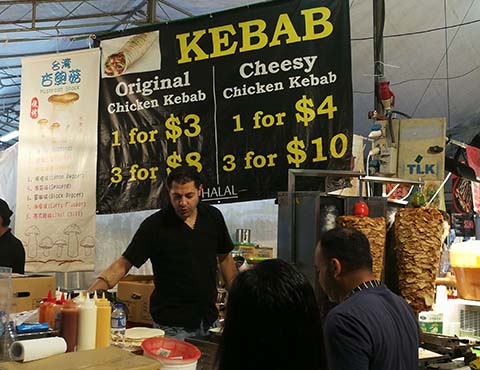
The photo above is of a cutlery tray at an ordinary food court. Those of us familiar with Singapore’s food courts will be able to read significance into the fact that there are two kinds of spoons mixed together. Spoons and forks with flowery handles are usually reserved for halal use; those with plain handles are non-halal. They are supposed to be kept apart and mixing them together even after washing is seen as causing contamination.
So what was going on in this food court? Continue reading ‘Spoons speak of political Islam’










